
South Sudan at 10: Have the towns been taken to the villages?
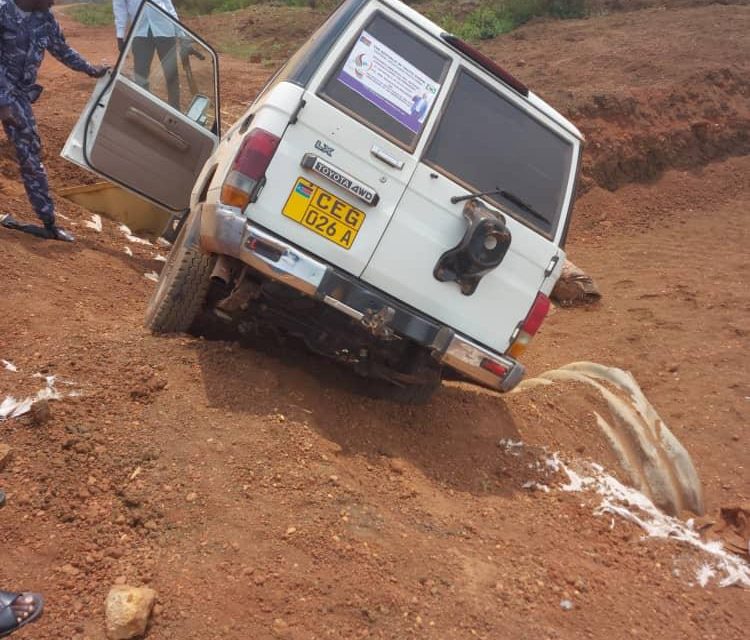
Ten years down the road, South Sudanese are seeking answers to the question that made them vote overwhelmingly for separation from Sudan in 2011. where are the towns?
By Winnie Cirino
The Sudan People’s Liberation Movement (SPLM) founding father, late Dr. John Garang de Mabior had a vision for this country. That vision has since died along with Dr. John Garand.
While South Sudan marks its 10th independence anniversary this. month, July 9, attitudes among its citizens are mixed over the performance of the SPLM party in implementing its vision of taking towns to the people.
Some say the party has not implemented the vision, but others think the SPLM has achieved success since they can access services like roads and health centers in their villages.
Sam Alonga, a resident of Magwi County, Eastern Equatoria state says, the vision of Dr. John Garang, the founder of the SPLM to take towns to the people, which means provide basic services to all people, has not materialized.
Alonga says today’s political leaders have not done much to fulfill Garang’s vision. He says there has been little economic development in rural areas. When one travels to villages like Ofiriha, or Agoro in Magwi County he says for example, one can hardly find a school or a primary health facility, adding the lack of proper infrastructure has cost several lives.
“Like this week, I am talking from the heart of Magwi, a woman was brought from Owiny Ki Bul PHCC under labor and the woman died on the way,”
“Had it to be that the basic services are taken to that village, I don’t know whether that woman was going to lose her life, which means it really affects us drastically.” Alonga says.
South Sudanese have experienced several conflicts which have left communities divided along ethnic lines. Alonga says the SPLM leadership should push harder and work to promote peace because war has been the biggest obstacle to development in South SudAN.
Data Gordon, an activist with OKAY foundation, a local youth rights organization, says nothing has been done regarding the SPLM vision where he lives.
“10 years down the road, I have not really seen the SPLM vision of taking towns to the villages reach my village. This is because so much of the national budget has gone into security but less into service delivery and amidst the much budget into security.”
“There is so much conflict that has been experienced within the 10 years, this has led to displacement, destruction and killing of innocent civilians, so if this is the vision, then it is sad. We need to revisit it.” Gordon says.
He says the government needs to speed up work on infrastructure projects including roads and dams and invest in the health and education sectors, saying South Sudan will only grow when the population is educated and healthy.
In Lakes state, resident Magot Machuot says he’s seen many developmental changes. He says before independence, only a few villages had mobile phones and many people had to travel to towns to communicate with their families across the world.
“We have some areas that the government has really delivered the services to the people of South Sudan, so now if you can go across South Sudan or the areas where I am, there are schools which is the positive part of the SPLM implementation.”
“People in many areas have access to medication compared to the times of the struggle. The government also have road connections of which the roads linking the villages to towns are now working.” He added.
Machuot admitted it’s true that many areas including his village still lack access to piped clean water. People travel long distances to the river side or at times crowd around a borehole to fetch water which he says often frequently leads to fights breaking out.
Machuot faults the ruling party for not developing the industrial sector, something he says is a key factor in a country’s growth, but he says that is likely due to continued deadly fighting.
University of Juba political science professor Jacob Chol says in 2011 after independence, the SPLM party was supposed to unite the people and take services closer to them but unfortunately war broke out in 2013 and again in 2016, which he says weakened the party because it lost valuable resources. As the country marks its 10th anniversary, Chol says the SPLM party should reflect on its original vision and start planning for a better South Sudan.
“South Sudan is a vast land and the leading party SPLM is all over the 10 states, so they should have plans for the country, the states, bomas and payams and that plan should be handed over to the subnational leadership of the party, the state, boma and the payam so that these visions are realized and seen by everybody that this is what we are going to do, but without information and domestication of these policies, they will end up here in Juba in the SPLM house.” Prof. Chol said.
Augustino Ting Mayai, an economic analyst with Juba-based think tank, The Sudd Institute, says the SPLM’s vision of taking towns to villages which translates into providing services to rural areas, has not produced any meaningful results because the country has had very limited stability to deliver services. He also says there have been no concrete plans to deliver those services. Mayai says South Sudan is still too dependent on oil for its revenue stream.
“The SPLM first needs to take control of the government, particularly the policy of the government by developing a strategy on how the government delivers services to the people, this means the SPLM needs to have a plan having an institution that deals with development agenda.” Mayai said.
“As we speak it is the ministry of finance that does planning but that planning is only economic planning and it does not provide activities related to development planning. The SPLM needs to take control of that and establish an authority on development which will inform the government, without that you can have all the money in the world but services will not be delivered.”
When contacted for comment, the acting SPLM Secretary General Jemma Nunu Kumba said she was not in a position to speak at that time but asked to be called the following day. She did not answer subsequent calls or respond to text messages.
Deng Mading, the acting SPLM information secretary and party spokesperson, acknowledges the party has not fulfilled the vision of taking towns to the villages.
“You can see the only thing we are making now is only roads and then the services to the people have not come, the way we have been dreaming, the services we mean [are] education, health, we mean roads, we mean clean drinking water through the taps, electricity and so on, so all these things have not been done yet.” Madding acknowledged.
Mading says the SPLM party has weathered many challenges starting with the death of Doctor John Garang. After Salva Kiir was appointed president, Mading said the SPLM began working on development projects, but said the party’s attention was diverted to implementing the referendum. He says development of the country was interrupted again when civil war broke out in 2013 and again in 2016. Mading says the SPLM is now focused on implementing the 2018 peace agreement, but security across the country remains a challenge.
The SPLM has built some schools and roads, including roads that link Juba to Bahr el Ghazel and Bor, but the government’s priority now is to implement the revitalized peace deal and encourage the return of South Sudanese refugees. Once those tasks are completed says Mading, the party will focus on providing basic services to the people, madding says.
“We have not yet recovered from the war itself.”
“You can see we have so many IDPs, people who have gone to refugee camps, we have rebel groups are still outside. Some of them signed [the peace deal] and then they ran again, so you can see the whole vision of the SPLM in the government as a ruling party has become only of how to implement peace and how to make people in the leadership of the SPLM itself, whether those who have rebelled, to see how you can accommodate them in the position, so I cannot tell you that we are going to take services to the people.” Mading disclosed.
This story first aired on VOA South Sudan in Focus

















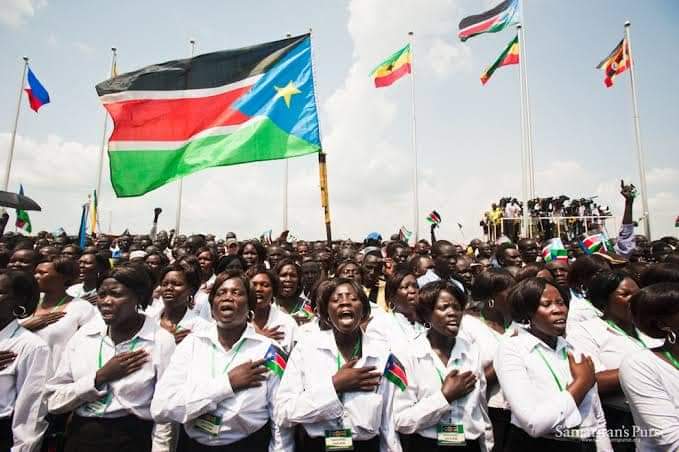


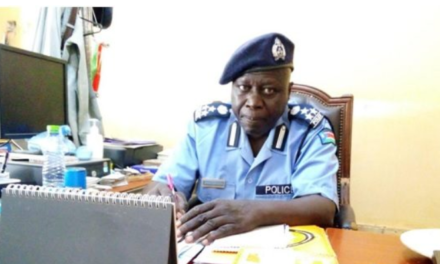
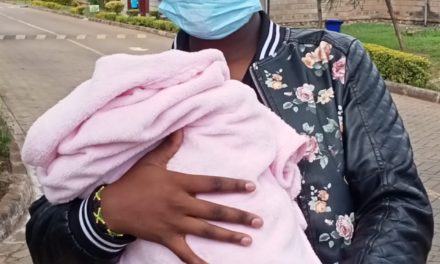
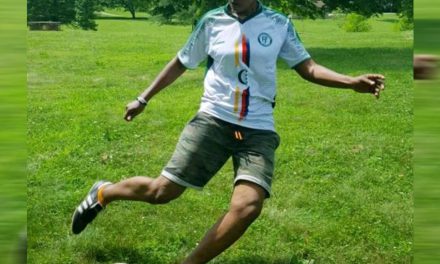
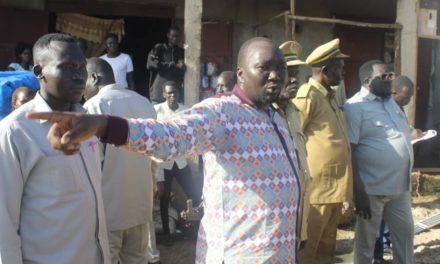
Recent Comments